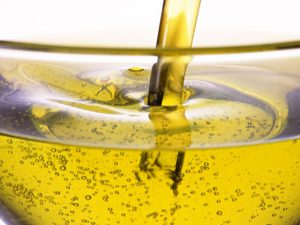
So, how well do you know your olive oil? Are you sure you’re getting the best value for your money? And more importantly, how sure are you that the bottle of olive oil in your pantry is good for you?
To help you appreciate and get the most out of your olive oil, you must first know more about it. So, here are some interesting facts that you should definitely know about.
Olive Oil – The Basic Facts
- The olive tree is native to the Mediterranean basin. Ancient Mediterranean people mostly use it for culinary, medicinal and cosmetic purposes. It was also used for various religious rituals.
- Homer, the greatest Greek poet of all times, referred to olive oil as “the liquid gold”.
- Hippocrates, the Father of Modern Medicine, referred to olive oil as “the great therapeutic”.
- 75% of the world’s supply of olive oil comes from Spain, Italy and Greece. Other leading producers of olive oil include Australia, South Africa, Argentina and Chile.
- There are about 700 kinds of olive oil in the world – each one with its own unique taste.
- For the record, olive oil is the only vegetable oil that can be produced simply by physically or mechanically pressing the raw material. The less processing involved, the higher the quality of the resulting product. As such, virgin olive oil is considered to be the best.
- Olive oil is about 80% monounsaturated fatty acids – the kind of fats that keeps your high density lipoproteins (HDL) or good cholesterol levels up while keeping your low density lipoproteins (LDL) or bad cholesterol in check.
The Health Benefits of Olive Oil
Do you know how good olive oil can be for your health? Here’s what you get from making it the primary source of fat in your daily diet:
- It promotes better heart health.
- It helps maintain blood pressure within healthy ranges.
- It helps control and even prevents the onset of diabetes.
- It can reduce the risk of colon and breast cancer.
- It can help minimize the severity of arthritis, asthma, ulcers and gastritis.
- It promotes beautiful skin.
The Hidden Facts
Due to the popularity of the so-called Mediterranean diet, olive oil is now currently very much in demand in most countries. In fact, according to Tom Mueller, author of Extra Virginity: The Sublime and Scandalous World of Olive Oil, the United States now ranks as the third largest market for olive oil.
However, there is a piece of bad news. There’s a chance that you are not getting the full benefits from that bottle of olive oil you just bought from your favourite supermarket. The high demand for olive oil worldwide is pushing some producers to make more of it at low cost so as to gain higher profits.
According to a collaborative research conducted by the UC Davis Olive Oil Chemistry Laboratory and the Australian Oils Research Laboratory, most olive oil products sold in various California retail stores failed to meet the sensory standards set by the IOC/USDA sensory standards. This was observed in 69% of the 14 imported brands and 10% of the five California brands used in the study. Additionally, 83% of the imported samples that failed the IOC/USDA test also failed the German/Australian DAGs sensory standards. The full details are documented in the July 2010 issue of the UC Davis Olive Center Report.
So, what should you do to make sure you’re getting the best quality olive oil for your money? Simple – look for a seal of quality (such as California’s Olive Oil Council or Italy’s DOP or Protected Designation of Origin) when buying. It is also advisable for you to check the production date (or the date when the fruits were picked) – the fresher, the better. Do these and you’ll surely bring home the best bottle that can do wonders for your health!

